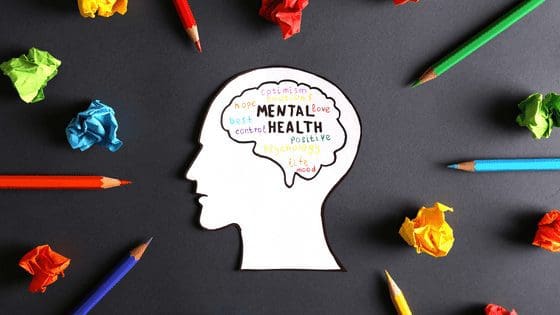Stress within the workplace is an all-too-common issue that can have a significant impact on our mental and physical health. According to a recent survey, almost 80% of workers experience stress on the job, which can lead to burnout, decreased productivity, and a higher risk of chronic health problems.
At Delphinium, we understand the importance of promoting a healthy work-life balance and providing employees with the tools to manage stress effectively. In this article, we’ll explore some proven techniques for coping with work-related stress that you can start implementing today.
What is Stress?
The UK Health and Safety Executive (HSE) defines work-related stress as: ‘The adverse reaction people have to excessive pressures or other types of demand placed on them at work’. Both natural and perceived ‘excess pressures’ are detrimental, and as individuals, we have different levels of tolerance to stress.
Too much stress affects our mood, body, and relationships, making us anxious and irritable and even lowering our self-esteem. That’s why gaining a clear view of how stress affects us is crucial.
What Causes Stress in the Workplace?
There are many causes of stress within the workplace, including:
- When people feel they don’t have the resources they need to complete their responsibilities, for example, sufficient time or the correct tools.
- The feeling of a lack of support can pile pressure on staff members.
- Unrealistic demands, such as unachievable targets
- Work assigned without sufficient training or support.
- Conflict or poor relationships in the workplace
- Concerns regarding job security
- Workplace bullying
Work-related stress is so common that 79% of people say they feel it frequently.
The Impact of Stress in the Workplace
Without effective stress management techniques, work-related stress can result in harmful short- and long-term consequences for employees.
People find it difficult to sleep or experience poor-quality sleep, affecting their concentration, reducing productivity, and increasing the risk of mistakes. They may become short-tempered or irritable, which can damage interpersonal relationships.
Excessive levels can lead to mental illnesses such as anxiety and depression and physical ailments such as ulcers and heart attacks.
The impact on businesses includes reduced employee output, high sickness, and employee turnover. Research shows that 13.7 million working days are lost yearly in the UK because of work-related stress, anxiety and depression, costing £28.3 billion annually.

7 Strategies for Stress Management
As we can see, preventing and managing pressure within the workplace is crucial. To help you do so, here are our top 7 techniques for combating stress at work.
1. Identify your stress triggers
The first step in tackling workplace stress is to identify what is causing it for you. We all have different tolerance levels, and while something might cause one person anxiety, it may not bother you. So, take some time and list your individual stress triggers.
Once you identify your triggers, you can take steps to avoid or reduce them. For example, if tight deadlines cause you to feel overwhelmed, consider how you can improve how you prioritise your workload, delegate some tasks, or speak with your manager about adjusting your workload.
2. Create a work-life balance
One method of stress management is to ensure you’ve created a healthy work-life balance. Balance doesn’t necessarily mean equal balance, especially if you love your job and are building your career. But it’s crucial to ensure you get enough time for yourself and switch off when you stop working. A good work-life balance could also include flexible working, which allows you to put the hours in that you need but can work around the school run or family activities, so you don’t need to sacrifice one for the other.
3. Exercise to help combat stress
We know that regular movement and exercise are excellent stress management techniques to help improve your mood and help you relax. But it can be difficult when you’re busy. Consider ways you can incorporate it into your family life. For example, get involved instead of watching the kids play football or jump on the trampoline.
Don’t like the gym? Then don’t go. Don’t like running? Then don’t do it. If you really dislike something, you immediately set yourself up for an internal battle. Instead, find something you enjoy doing that feels fun – not work.
4. Manage stress by confiding in others
Talking to others around you helps reduce the effects of stress in a couple of ways. Sometimes we need to get things off our chest, and we instantly feel our stress levels start to come. Find a trusted colleague, utilise an employee assistance programme or other outlet and talk through what you’ve got going on. Opening up this way can also help you understand your emotions as you articulate them to others.
Getting things off your chest is fantastic, but it may only be a short-term solution. If what’s causing you stress is overwork or conflict with a colleague, further action may need to be taken. For example, complaining about your workload isn’t going to change it, and you may also need to speak to your manager.
5. Increase self-awareness
Develop your self-awareness around your stress tolerance levels, triggers, and how you respond emotionally and physically. Stress often manifests in physical symptoms such as headaches or neck pain. Noting how you begin to feel when stressed can help you link the feelings with what caused them. Are you stressed after speaking to a particular manager or when deadlines are coming up?
The more you know about yourself and how you respond, the better equipped you will be to use appropriate management techniques and manage workplace stress.

6. Take breaks
Taking regular breaks throughout the workday is essential for managing workplace stress. A short break to stretch, chat with a colleague, or grab a healthy snack can help you recharge and refocus. If you work from home, mix activities within your working day, such as putting a wash on or walking the dog.
Regular breaks can reduce workplace stress and improve your overall productivity rather than attempting to push through.
7. Prioritise self-care
Self-care is crucial for managing stress generally. Taking care of your physical and mental health can help you feel more resilient and better equipped to handle challenging situations.
Here are some self-care practices you could try:
- Getting enough good quality sleep
- Eating a balanced diet, including stress-relieving foods like oatmeal, salmon and dark chocolate.
- Practice relaxation techniques such as mindfulness, tai chi, and yoga.
- Block out time for hobbies or anything you enjoy doing just for fun.
In summary, work-related stress is negatively affecting individuals and businesses daily. It can cause a decline in productivity, poor health, and even mental illnesses such as anxiety and depression. However, the good news is that there are several strategies to help prevent and manage workplace stress:
- Identifying your triggers and taking practical steps to avoid or reduce them.
- Creating a work-life balance that works for you.
- Regular exercise and having fun with it.
- Speak with others to get things off your chest and make necessary changes.
- Increasing self-awareness to understand better how you respond to pressure.
- Prioritise self-case for increased resilience.
By implementing these strategies, individuals can better manage their stress levels, improve their overall health and well-being, and increase their productivity at work.
While these strategies are aimed at dealing with stress in the workplace, employers have a duty of care to their employees and should reduce stress where possible. Companies can alleviate stress at work by creating a supportive environment, offering flexible work arrangements, and promoting employee well-being through breaks and self-care priorities.
By prioritising stress awareness, reducing the sources of stress and developing effective management techniques, individuals can achieve better mental and physical health. As a result, employees perform better and have greater job satisfaction.
In summary, work-related stress is negatively affecting individuals and businesses daily. It can cause a decline in productivity, poor health, and even mental illnesses such as anxiety and depression. However, the good news is that there are several strategies to help manage and prevent workplace stress:
- Identifying your stress triggers and taking practical steps to avoid or reduce them.
- Creating a work-life balance that works for you.
- Regular exercise and having fun with it.
- Speak with others to get things off your chest and make necessary changes.
- Increasing self-awareness to understand better how you respond to stress.
- Prioritise self-case for increased resilience.
By implementing these strategies, individuals can better manage their stress levels, improve their overall health and well-being, and increase their productivity at work.
While these strategies are aimed at individuals managing stress within the workplace, employers have a duty of care to their employees and need to reduce workplace stress. Systems that companies can implement to minimise workplace stress include providing a supportive work environment, flexible working arrangements, and encouraging employees to take breaks and prioritise their well-being.
Ultimately, by prioritising stress management techniques in the workplace, individuals and organisations can achieve better mental and physical health, leading to greater success and satisfaction in both personal and professional lives.
At Delphinium, we have a range of training courses on stress management, mental health awareness and resilience for managers. Alternatively, if you require some one-to-one support, this is something that we also cover. Contact us or book a free discovery call to discuss your requirements.
Published 27th March 2023.




